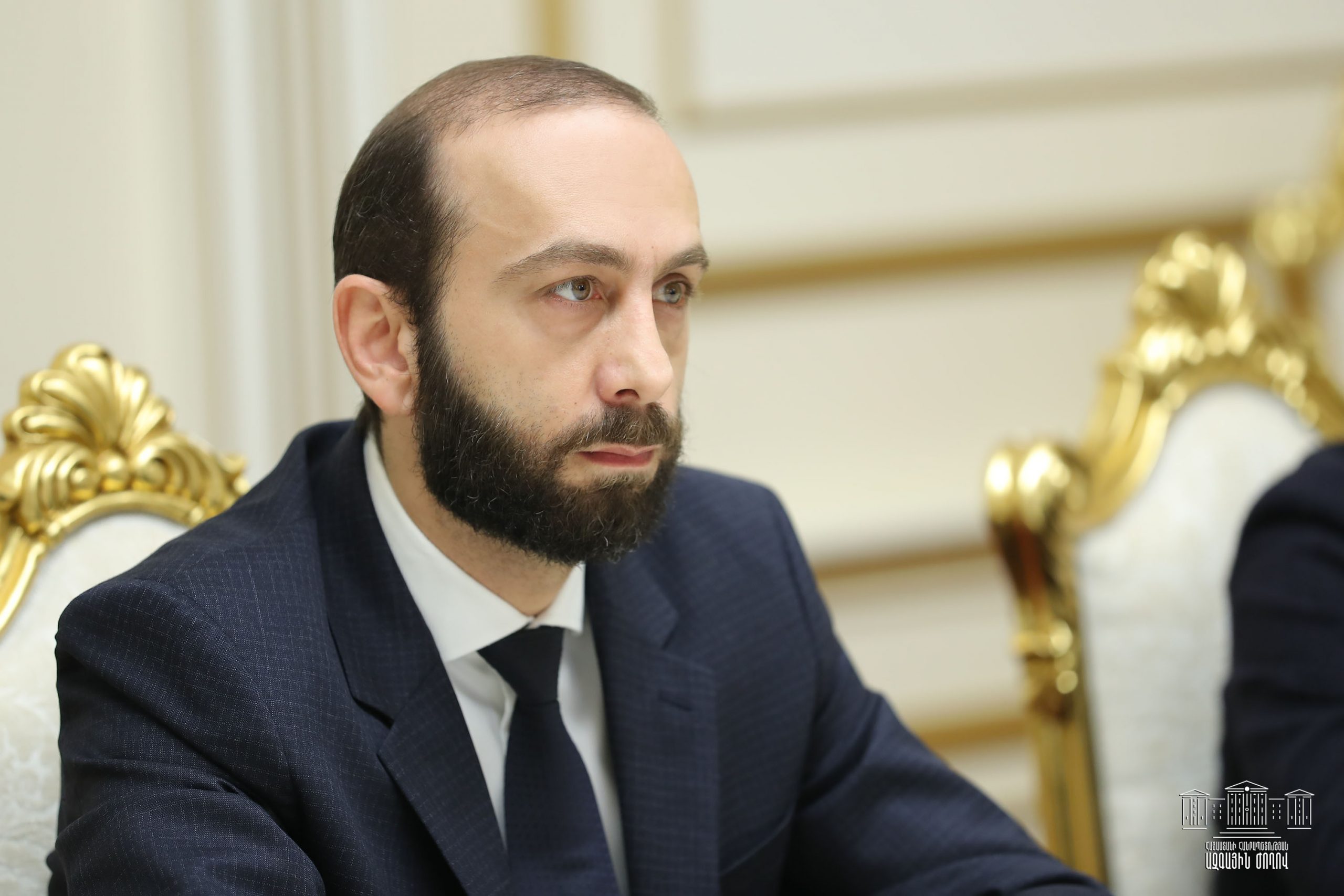On 11 November, as part of his working visit to Paris, Armenian Foreign Minister Ararat Mirzoyan gave an interview to French newspaper “Le Figaro”, which is available below:
What is the situation on the border and in Nagorno-Karabakh one year after the conflict?
Azerbaijan’s military aggression against Nagorno-Karabakh ended on 9 November, 2020 with a trilateral statement on ceasefire. But the situation remains very tense. Over the past year, around 30 serious ceasefire violations have claimed victims and injured. The Azerbaijanis also murdered civilians.
Nonetheless, Armenia is doing everything possible to establish lasting peace in the region. But for this process to be effective, efforts must be made on both sides.
What efforts is Armenia ready to make?
The rhetoric is different on both sides. Armenia talks about opening all communication routes, but Azerbaijan insists on a so-called corridor (with its Nakhichevan province, which is landlocked between Armenia, Turkey and Iran, editor’s note). Armenia is ready to hand over any mine location maps in the region that it has, however, Azerbaijan, despite its obligation, does not release the Armenian prisoners of war.
When we speak of peace, Azerbaijan multiplies xenophobic statements. Just read the words of the President of Azerbaijan. Just look at the “Trophy Park” opened in Baku last spring, where Armenians were humiliated and denigrated.
How far can these hate speeches that you denounce reach?
The answer to this complex question can be found in Baku. Hatred can lead to extermination and genocide. The Armenian people know this. Lasting peace is possible, but the presence of Armenian populations in territory controlled by Azerbaijan is difficult to imagine. Today, no Armenian lives in the territories that came under Azeri control after the war, which is a fait accompli of ethnic cleansing.
How many prisoners are held in Azerbaijan?
Multiple testimonies show that prisoners of war are subjected to inhuman and degrading treatment and torture. These are facts documented by several NGOs, including “Human Rights Watch”. We also have photos and videos that bear witness to the captivity of people whose presence was not confirmed by Azerbaijan.
They may have been the target of extrajudicial killings, be held in clandestine prisons, or be victims of trafficking in human organs. The presence of 40 prisoners of war is confirmed by Azerbaijan and a hundred is denied.
Last Wednesday, you met with French Minister Jean-Yves Le Drian and then you and your counterpart Jeyhun Bayramov took part in a trilateral meeting involving the OSCE Minsk Group Co-Chairs. What was the result of the latter?
I would first like to thank President Macron, the French parliamentarians, all those who have shown their support to Armenia.
I also want to stress the importance of resuming negotiations under the auspices of the OSCE Minsk Group Co-Chairmanship. The question of the final settlement of the Nagorno-Karabakh conflict is on the agenda. But at the current stage, we have agreed to progress in small steps: the release of prisoners, access to Nagorno-Karabakh by international organizations for humanitarian reasons, and access by UNESCO, which will be aimed at monitoring the state of the Armenian historical and cultural heritage, as the historical and cultural monuments of Artsakh are under the threat of deliberate targeted destruction by Azerbaijan. The Saint-Sauveur Cathedral in Shushi was thus severely damaged by a deliberate drone attack. About 1,500 cultural monuments and 19,000 museum specimens of Artsakh are endangered.,
What role should Russia play, which has deployed 2,000 troops n Nagorno Karabakh to maintain the ceasefire?
Russia succeeded in stopping the war on the 44 days of hostilities. It is co-chair of the OSCE Minsk Group. Russian peacekeepers are ensuring the safety of the Armenians in Nagorno-Karabakh and contribute to restore normal life. Azerbaijan’s ceasefire violations are also directed against the credibility of the Russian peacekeepers.
Is Armenia ready to normalize its relations with Turkey and to accept a corridor linking Azerbaijan to Turkey?
We have always said that we are ready to normalize our relations without preconditions. And this despite Turkey’s immense involvement in the war alongside Azerbaijan: through political support, but also through the delivery of arms and the deployment of thousands of foreign mercenaries.
We have received positive signals from Turkey to reopen the dialogue, but it remains difficult. Ankara sets new conditions. Among these is the “corridor” linking Azerbaijan with Nakhichevan and Turkey. There can be no question of it. States must ensure road transit while maintaining the sovereignty of their territory. All lines of communication must be reopened in the region.















